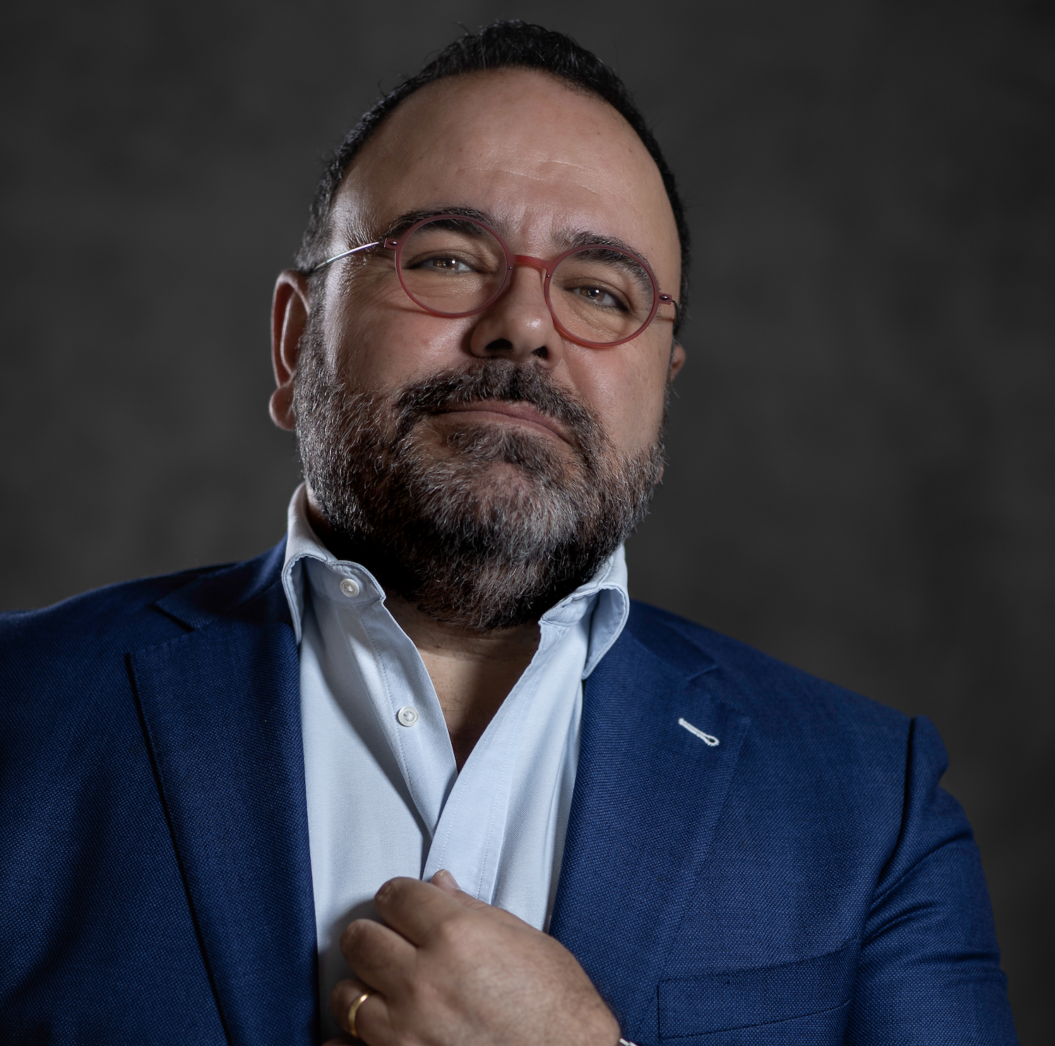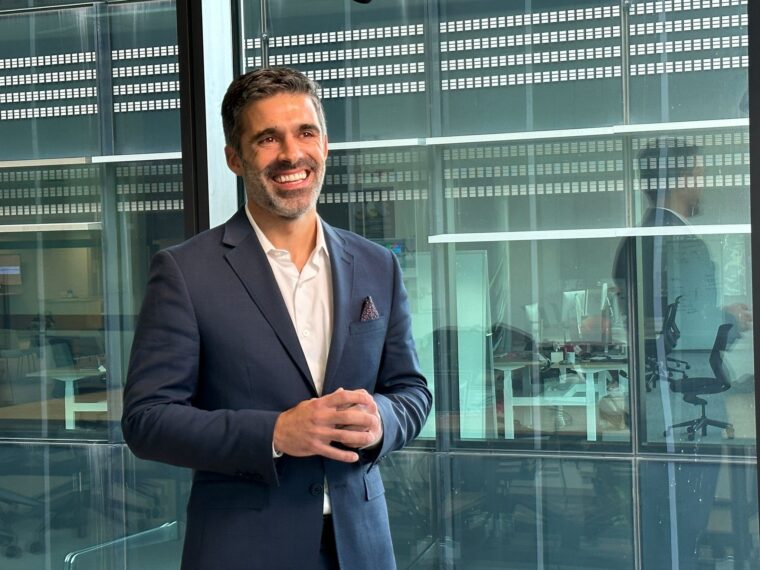As part of the partnership between the Portuguese Diaspora Council and Jornal de Negócios, Nuno Varandas, International Executive Consultant in Operations and Counselor of the Asia Regional Hub, was interviewed by Jornal de Negócios. In the interview, Nuno Varandas discussed his professional journey and identified competitive opportunities for Portugal, its economy, companies, and entrepreneurs in general.
1 – WHAT LED YOU TO LEAVE PORTUGAL?
It was a career opportunity, part of my professional journey to become the first Portuguese leader responsible for the entire Asia Pacific, Japan, and China region in Cisco’s Operations area — a company where I already had a 16-year career when I moved from Lisbon to Singapore.
2 – WHAT ADVANTAGES OR DISADVANTAGES HAS THE FACT THAT YOU ARE PORTUGUESE BROUGHT YOU?
A move to Asia always brings up the question of what it means to be Portuguese, and it’s remarkable how far-reaching Portugal and being Portuguese are perceived in this region. The Portuguese influence is still felt and often serves as an excellent icebreaker, thanks to the warm perception and lasting memories Portugal left in this part of the world. We were — and will always be — “The First Global Village”!
3 – WHAT OBSTACLES DID YOU HAVE TO OVERCOME AND HOW DID YOU DO IT?
Adapting to Singapore felt like setting off on a new expedition — not with sails and astrolabes, but with mental maps, deep curiosity, and cultural sensitivity. Rediscovering and adjusting to a place where everything seems perfect and choreographed, while blending in the Portuguese spirit — where improvisation, soul, conversation, and emotion are in our DNA — was a fascinating experience. But I believe that our resilience and “navigating” spirit made everything easier for me and my family. I didn’t change who I am, but I observed and listened more attentively, gradually finding my place as a Portuguese in the East — with respect for rules and cultures, a sense of humor, and always, always carrying saudade tucked safely in my pocket.
4 – WHAT DO YOU MOST ADMIRE ABOUT THE COUNTRY YOU ARE CURRENTLY IN?
To me, Singapore represents what I call order with ambition. (Almost) everything works — not just because it’s efficient, but because the country has and communicates a clear, shared vision of what it wants to be and offer to the world.
While much of the world shifts toward more transactional and nationalist commercial and geopolitical relationships, Singapore offers a value proposition rooted in talent, innovation, and long-term partnerships. And perhaps that’s why, despite its small size, it plays a disproportionately large role in global decision-making. It grows with principles, attracts without noise, and leads with consistency.
5 – WHAT DO YOU ADMIRE MOST ABOUT THE COMPANY/ ORGANIZATION YOU ARE IN?
I recently left Cisco after 24 years across Portugal, Europe, and Asia — a journey filled with truly impactful professional and, above all, personal experiences.
What I continue to admire and value in these large multinational companies is their ability to build bridges between countries, cultures, people, and ideas. Working in a global organization like Cisco allowed me to contribute to the development of teams and operations across different continents and to witness firsthand how technology and local talent can serve as powerful levers and catalysts for real growth and development in the countries where we operate.
6 – WHAT RECOMMENDATIONS DO YOU HAVE FOR PORTUGAL, ITS ENTREPRENEURS AND MANAGERS?
Much of what is said about Portugal and its potential is already well known: talent, creativity, quality of life, climate, and strong education. But the real challenge doesn’t lie in recognizing these qualities — it lies in our ability to transform them into structured and strategic impact. Based on my experience in Asia and my role as Vice President of the Portuguese Association in Singapore (APS), I’d like to share four reflections:
a) We lack a culture of association and collective vision in value creation.
Almost everyone wants to export their own brand or service, but few are willing to build the brand Portugal as a concept — a representation of an identity and a way of life. We need to think in terms of collective heritage, not just “my” brand.
b) We must continue to expand the Portuguese Diaspora as a true strategic asset for Portugal.
We have a global network of Portuguese with access, knowledge, and experience. Some of us — myself included — must become more active and engaged in creating that strategic value. We need to feel that sense of responsibility — to connect the dots, build bridges, and take risks.
c) We should export presence, not just products or services.
Positioning Portugal in the world requires continuity, investment in reputation, and cultural intelligence. In a hyper-connected world, being in the right contexts — with a clear value proposition, consistent positioning, and international ambition — is what sets apart those who simply export from those who influence.
d) We need a mindset of influence, not dependence.
We must position ourselves based on merit and value, not out of need or expectation of support. Economic diplomacy starts with substance, not requests.
Portugal can — and should — play a more active role in shaping its international image. To do this, we must move beyond the mindset of “my product” and begin working on “our positioning.” Only then will we stop being discovered occasionally… and start being sought out strategically.
7 – IN WHICH SECTORS OF THE COUNTRY WHERE YOU LIVE CAN PORTUGUESE COMPANIES FIND CUSTOMERS?
a) Digital technologies and solutions – There is strong demand for cybersecurity solutions, specialized SaaS, and technology focused on sustainability and operational efficiency.
b) Premium agri-food products and wines – Products with identity and heritage have room to grow in a market that values — and pays for — quality, authenticity, and storytelling. However, the entire logistics chain, including packaging, distribution, and certifications, is crucial for success.
c) Hospitality, design, and lifestyle services – Portugal offers an aesthetic and approach to hospitality that resonates here, particularly in boutique hotels, interior design, and purposeful luxury experiences.
8 – IN WHICH SECTORS IN PORTUGAL COULD COMPANIES IN THE COUNTRY WHERE YOU ARE WANT TO INVEST?
a) Health and Biotechnology – Singapore is heavily investing in cutting-edge healthcare services and biotechnology. Portugal has an emerging pharmaceutical and biomedical sector that is well-positioned for growth.
b) Agriculture and Food Industry – Singapore imports 90% of its food and holds free trade agreements with the EU. In the current geopolitical climate, this should be leveraged to reduce dependence on the U.S. market.
c) Real Estate and Tourism – There is strong potential through real estate investment funds to develop areas in Portugal for luxury tourism and sustainable hotel projects.
d) Logistics and Ports – Portugal’s strategic ports connect Europe with Latin America and Africa. As a global logistics hub, Singapore could invest in modernizing Portuguese ports and strengthening maritime links with Asia.
e) Renewable Energy and Sustainability – As a European leader in renewable energy, Portugal is well placed to support Singapore, which faces challenges in clean energy generation due to its size and geography. The recent investment by the Singaporean Government in EDP Renováveis is a strong example of the sector’s potential for Portugal.
f) Technology and Digitalization – Singapore is one of the world’s leading tech hubs, with strong presence in fintech, AI, and cybersecurity. Combined with Portugal’s growing startup ecosystem, this sector offers significant opportunity. Attracting investment through a competitive incentive network could help position Portugal as a global strategic tech hub.
9 – WHAT IS THE COMPETITIVE ADVANTAGE OF THE COUNTRY YOU ARE IN THAT COULD BE REPLICATED IN PORTUGAL?
Setting aside political aspects and Singapore’s governance model, I see clear advantages in its business ecosystem that Portugal could seek to adopt. Among the many, I would highlight three particularly relevant ones:
1. Urban Planning and Infrastructure – Though smaller than Madeira in land area, Singapore has around 6 million inhabitants, with 77% living in government-subsidized public housing. Exceptional urban planning, a world-class public transport system, and accessible housing for locals create the perfect foundation for the country’s development.
2. Education and Talent Development – With a strong focus on STEM (Science, Technology, Engineering, and Mathematics), Singapore prepares, educates, and retains talent to support high-value industries and future-ready sectors.
3. Digitalization and Government – Singapore is arguably one of the most digitalized governments in the world today. This translates into greater productivity and significantly more efficient access to public services.
10 – ARE YOU THINKING OF RETURNING TO PORTUGAL? WHY?
Returning to Portugal is part of my plans, for two simple reasons. First, the desire to come home and be closer to my loved ones. And second, to bring back what I’ve learned as a global manager and contribute—like many of our fellow professionals—to the growth and success of Portuguese companies, supporting their development with international experience and perspective.







